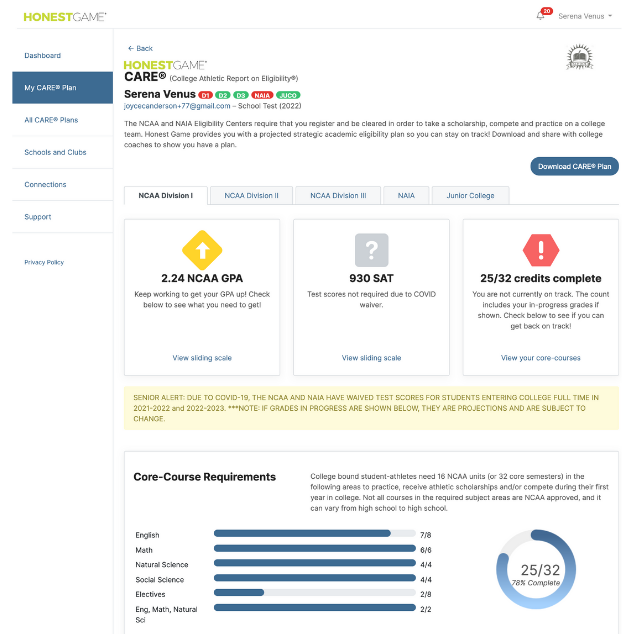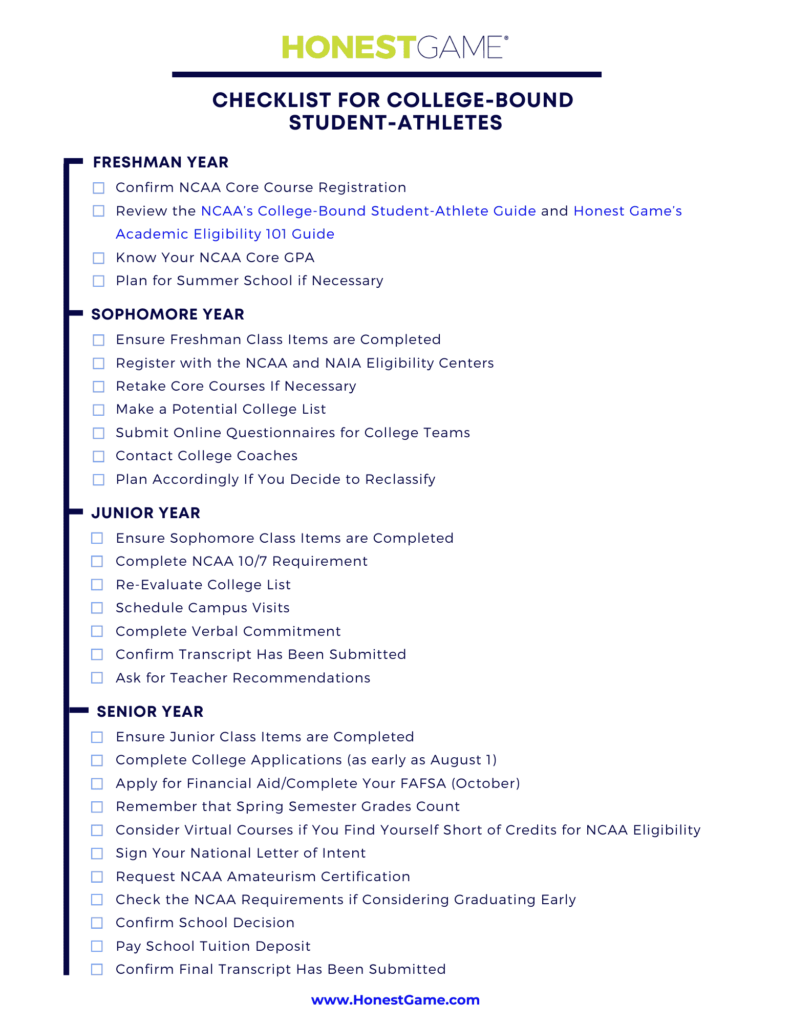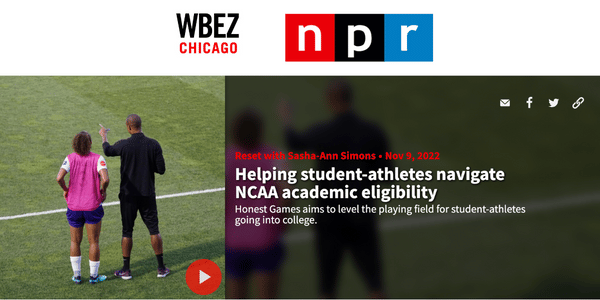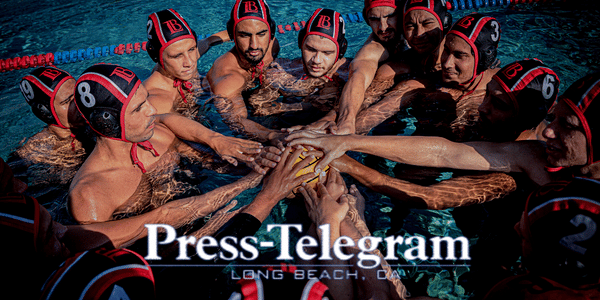3 Things Student-Athletes Should Think About as They Return from Break
Updated on Aug 10, 2023

The fall return to high school is an exciting time during the year, especially for those beginning or continuing in their athletic careers. Over the next few weeks, more than 50 million students will head back to school and up to 70 percent of them participate in organized sports.
For student-athletes, juggling multiple classes and getting back into athletic competitions and practice takes time management and discipline, especially for those that are looking to continue their athletic journey by playing at the college level. To make it all work, it’s important to prioritize.
Honest Game has outlined the following steps to help get your school year off to a smooth start.
1. Know Where Your Eligibility Stands
If you’re considering playing college sports, having a handle on the academic eligibility process as early as freshman year in high school is key to not missing out on future opportunities.
Wondering what academic eligibility means? It is the status that determines whether a student will be able to practice and compete in varsity sports at the collegiate level – and is typically determined using some combination of a student-athlete’s high school coursework (commonly known as NCAA-approved core courses), GPA, and in some cases class rank.
Further confusing the process, eligibility rules differ depending on the school’s governing body and division level – such as the National Collegiate Athletic Association (NCAA), National Association of Intercollegiate Athletics (NAIA), or a junior college institution.
And while the NCAA and NAIA share several similarities, the NAIA has its own governing body and a separate set of eligibility rules.
The process can be confusing for most students (and adults), but Honest Game is here to help! Be sure to read through Honest Game’s Academic Eligibility 101 Guide for the highlights of the key steps to ensuring you’re on the path to academic full-qualifier status to practice, compete and earn a scholarship for college sports.
To help simplify the academic eligibility process, Honest Game’s CARE® (College Athletic Report on Eligibility) provides each student-athlete an individualized academic eligibility plan to make sure you are academically on track with clear short-term goals to achieve the eligibility requirements needed for college sports.

2. Be Aware of Recruiting Regulations and Updated Rules
Did you know that each sport in college has a different set of rules regarding when a college coach can communicate with recruits?
The NCAA Recruiting Calendar regulates when and how NCAA Division I (DI) and Division II (DII) college coaches can proactively start recruiting student-athletes. More specifically, recruiting calendars dictate when a potential coach is allowed to initiate contact depending on your sport, age, division level, and type of communication. Failure to follow the rules could result in a violation for the coach (and you!) receiving penalties, and it is important for recruits to familiarize themselves with the NCAA’s sport and division-specific recruiting calendars.
To help make sense of the often confusing calendars, Honest Game outlined the general recruiting terms and timelines to help student-athletes and their frecruits need to familiarizeegin the recruiting process.
In addition to Honest Game resources, review the NCAA’s College-Bound Student-Athlete Guide to better understand the breakdown across NCAA division levels and sports.
3. Make a Plan to Ensure the Right Steps Towards Your Academic and Athletic Future
Many student-athletes dream of continuing to play their sport in college, but navigating the complex academic eligibility rules and nuances of recruiting can be a daunting process.
Honest Game’s Checklist for College-Bound Student-Athletes provides a four-year guide with the key steps year by year to getting recruited and ensuring you’re on the path to academic full-qualifier status to practice, compete and earn a scholarship for college sports.
Download and print the year-by-year checklist to keep yourself on track with academic eligibility and recruiting for college sports.
|
|
The pathway to college sports can be complicated, but staying organized and focused on eligibility can help keep college playing opportunities on track.
Have more questions about your academic eligibility? Honest Game’s expert counselors can provide one-on-one assistance to help you avoid common eligibility errors and successfully navigate your pathway to college sports. Schedule a time to meet virtually with our experts today!

Having served on the NCAA Eligibility Center High School Advisory Board and as the College Bound Student-Athlete Advisor at Evanston Township High School (Evanston, IL), Joyce has advised more than 2,000 high school student-athletes and families on academic eligibility and recruiting.




